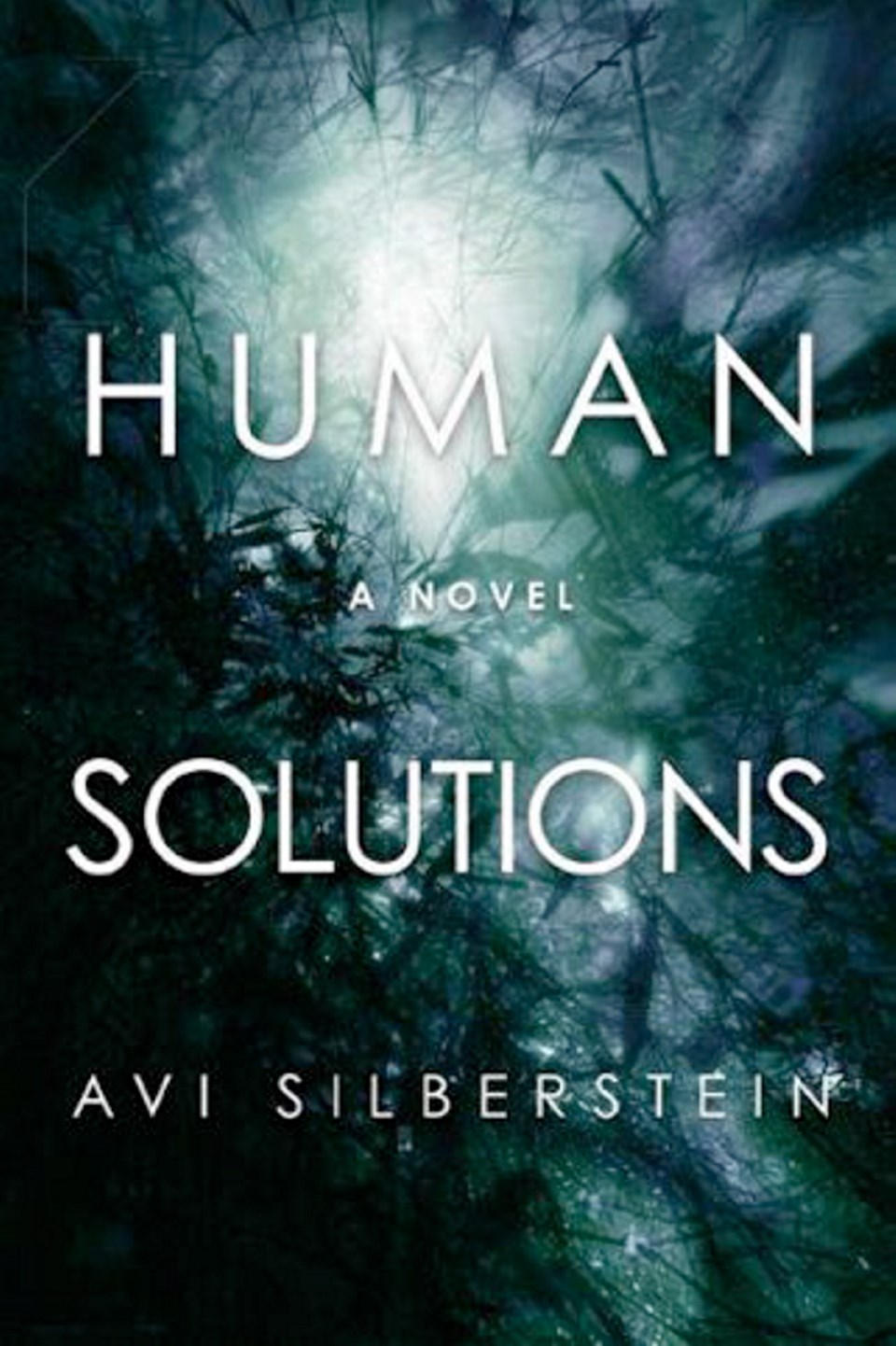Growing up in Chile in the 1990s, Avi Silberstein remembers being fascinated by sensational news reports about a man called Paul Schäfer. The founder of a bizarre commune of German immigrants called Colonia Dignidad, Schäfer fled the country after being accused of child molestation.
Inspired by this notorious case, Silberstein — a former librarian at the Greater Victoria Public Library — recently released his debut novel Human Solutions (Skyhorse Publishing, 288 pp., $29.95).
The main character is a Chilean, Javier Gonzalez, who runs a business called Human Solutions. Using a team of actors, the company strives to fulfill the unconventionial wishes of clients. For instance, when a woman falls in love with a television weatherman — a man she’s never met — Gonzalez and his team conspire to make the broadcaster become enamoured with her as well.
Meanwhile, things heat up when Gonzalez’s girlfriend becomes worried about the welfare of her young son, who’s lodging at a colony that sounds very much like Schäfer’s diabolical commune/cult.
The real-life Colonia Dignidad was used by the Chilean secret police as a centre for torture and imprisonment during Augusto Pinochet’s dictatorship. Schäfer, a former Luftwaffe paramedic, was charged with molesting more than 20 young people in his colony. Investigators also found a huge cache of weapons there, including a tank. The colony’s notoriety was further increased by reports that Josef Mengele, the Nazi “Angel of Death,” was a regular visitor.
In 2006, Schäfer was sentenced to 20 years for sexually abusing children — he died in a penitentiary hospital four years later.
“I remember as a kid, just watching the newcasts that come on, talking about these crimes that were being committed in this colony that surfaced,” said Silberstein. “To me, as a kid, it really affected me and stayed with me.”
The Schäfer story recently re-entered the headlines when it was reported Emma Watson will star in the movie Colonia, a thriller inspired by Colonia Dignidad.
Silberstein phoned from Grand Forks, where he moved two years ago to become director of the town’s public library. Human Solutions is so far been well received, with the Winnipeg Free Press declaring it “carefully crafted fiction” and the novel being included on a CBC Radio summer reading list. Silberstein’s writing style is taut and concise — not surprisingly, one of his literary heroes is that master of minimalism, Raymond Carver.
The 32-year-old novelist’s path to fiction is a circuitous one. Silberstein moved to Canada from Chile in 2000 to study science at McGill University. Afterward, he decided he wanted to become a writer. He failed to get accepted into the MFA writing programs in Canada and the U.S. So Silberstein followed a backup plan, taking a graduate degree in library sciences at the University of Western Ontario (his mother, who still lives in Santiago, is also a librarian).
Working at the Greater Victoria Public Library in the mid-2000s, Silberstein still harboured dreams of becoming a writer. He entered a postcard-story contest (400 words or less) held by the Victoria Writers’ Society. First prize was free tuition to a summer-school writing classes.
Silberstein didn’t win. However, he persuaded the summer school to give him a tuition discount. There he studied with such writers as Susan Musgrave and Kevin Patterson. Silberstein started writing “real-deal” short stories, one of which was accepted by a literary magazine, The New Quarterly.
“I said, ‘This is easy...’ I wrote a few more and then got a bunch rejected over the course of the next few years. I don’t think I got a single accepted story over that time.”
Eventually his dry spell disappeared — Silberstein found himself being published once again. He assembled a collection of short stories. One agent wrote back and said while he wasn’t interested in short fiction, he liked Silberstein’s writing. If he ever wrote a novel, the agent added, he should get in touch.
“I wrote back and said, ‘Oh, I’m already hard at work on a novel. I’ll send it to you as soon as I have it.’ And then I sat down and proceeded to start writing a novel,” he said.
Human Solutions was the result.
The Colonia Dignidad story, with its Nazi overtones, is of particular interest to Silberstein because of his ancestry. All four of his grandparents were Holocaust survivors liberated from concentration camps. One had a young Silberstein type out his dictated memoirs — something that helped fuel the teenager’s future literary ambitions.
Another grandparent was interviewed by a team assembled by Steven Spielberg for a project the film-maker did on the Holocaust. Once again, Silberstein’s typing was enlisted when the relative wanted a transcript. In that interview, his grandfather mentioned in passing that his grandson was going to become a writer.
“That completely floored me because I don’t remember wanting to be a writer as a kid,” he said with a laugh.
Silberstein, who has a wife and young child, plans to keep writing. On top of that, he may add agriculturist — a long-time interest — to his growing list of achievements.
“The truth is I’d like to be a part-time farmer, part-time novelist and maybe a part-time librarian,” he said.



